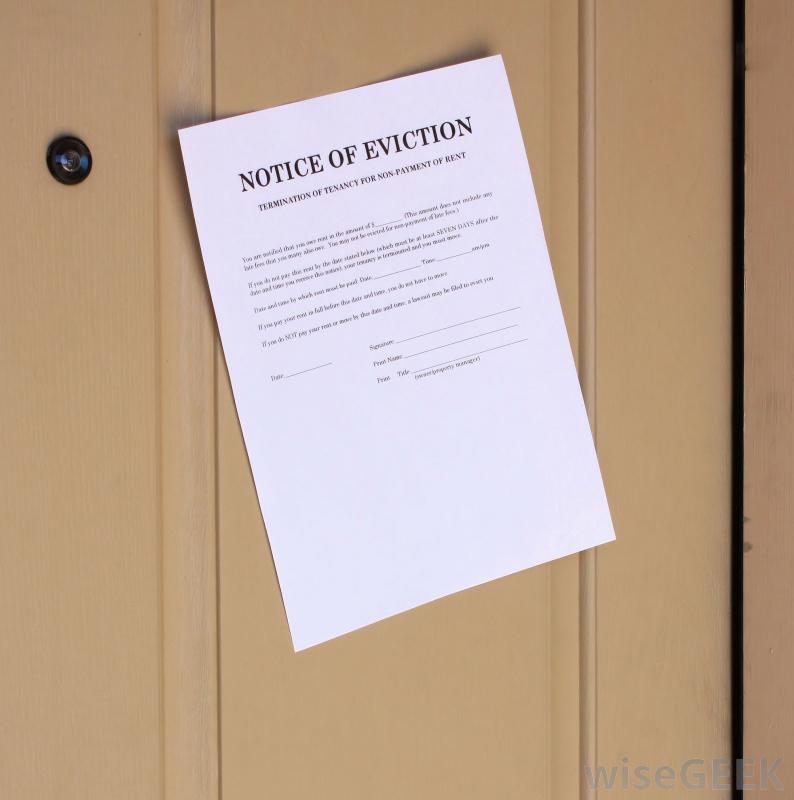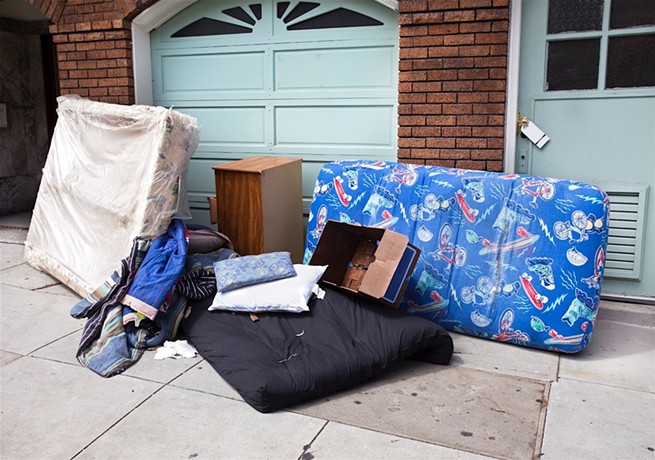How to Count the Days in a Notice
How to Count the Days in a Notice
 We have seen some Notices that were defective Landlords when giving the Tenant a Notice to Quit or Other Notices there are times set for each notice. Find Free Notice to Quit Forms in your State, Tenants can also find Free How to answer an Eviction Form and information.
We have seen some Notices that were defective Landlords when giving the Tenant a Notice to Quit or Other Notices there are times set for each notice. Find Free Notice to Quit Forms in your State, Tenants can also find Free How to answer an Eviction Form and information.
Counting the number of days in a notice may seem obvious – counting is counting, right? How could you, dear reader, have gotten to this point in life, reading this sentence, without knowing the basics of counting? And yet, in tenant-landlord law, it is not so simple.
Today, we’re going to tackle the Rules.
The Rules Are:
- Don’t ever include the day that the notice was served. This is not one of the days you count.
- If you are counting the daysin a notice with 10 days or less, you don’t include Saturday or Sunday or holidays.
- If you are counting the days in a notice with 11 days or more, you may include Saturdays and Sundays and holidays.
- The last day of the notice cannot be a Sundays or a holiday, no matter the length.
- “Holidays” here are those that are listed below.
- When counting the days in non-renewal notices, the effective date must be the last day in the rental period. (Most rental periods are 1 month, and most rental periods have the rent due on the 1st of the month, which make the last day of the month the end of the rental period.)
What it means:
- Counting a 5 day notice:If a landlord is giving a 5-day notice to a tenant, the landlord cannot count the first day it was served, cannot count the weekend, and cannot count any holidays.
- For example: 5-day is served on June 30, 2014. June 30 does not count (it was the day served), July 4 does not count (it is a holiday), July 5&6 do not count (they are Saturday and Sunday). So the soonest it could end would be July 8. The notice would then be served June 30, and the notice could not end sooner than July 8.
- Counting a 14 day notice:If the landlord is giving a 14-day notice to a tenant, the landlord cannot count the first day it was served, and cannot count the last day if the last day is a Sunday or holiday.
- For example: 14-day is served November 12, 2014. November 12 does not count (it was the day served). The soonest that the notice could end would be November 26, 2014.
- For example: 14-day is served November 13, 2014. November 13 does not count (it was the day served). The last day would be November 27, 2014, except that it is a holiday (Thanksgiving!). The notice could not end sooner than November 28, 2014.
- Counting a 28 day notice:This kind of notice can be given either by the landlord or the tenant. If one party is giving a 28-day non-renewal notice to the other party (for terminating a month-to-month tenancy, say), then the first party cannot count the day that the notice is served, and must allow at least 28 days’ notice before the end of the rental period.
- For example: A month-to-month tenant gives a 28-day non-renewal notice to the landlord on October 9, 2014. Rent is always due on the 1st day of the month, as payment for 1 months’ rent, so the last day of the month is the end of the rental period. Here, October 9 would not count as one of the days (it was the day notice was served). 28 days is complete on November 6, but since that is not the end of a rental period, the soonest effective date would be November 30, 2014.
- For example: A landlord serves a 28 day non-renewal notice to the month-to-month tenant on August 11, 2014. Rent is always due on the 15th day of the month, as payment for 1 months’ rent, so the 14th of the month is the end of the rental period. Here, August 11 would not count as one of the days (it was the day notice was served). 28 days is complete on September 8, but since that is not the end of a rental period, the soonest effective date would be September 14, 2014.
Pro Tips for Landlords:
- When is your office open?If you are asking the tenant to take some kind of action (pay your rent! kick out that guy!), and you give them an eviction notice, where they have to take some kind of action by some (thoroughly counted) date, make sure that you are available on that date. If you happen to be closed the entire month of December, then asking them to turn in their rent by the 15th or move out won’t be a great play. How can you know what happened if you weren’t even there?
- What if you get an inaccurate date in a non-renewal notice?So, let’s say your tenant gives you a non-renewal notice, and it doesn’t have the correct end date (ie, it doesn’t end at the end of the rental period, or there aren’t 28 days between being served at the end of the tenancy). The notice is still valid. The dates are not. The law is pretty clear about this. What this means for you is that the notice is valid, but the dates are adjusted so that the end date is counted correctly. This is as long as you can hold the tenant responsible for the costs under the lease, but if they wish to break their lease and move out early, then you still have the obligation to mitigate
- What if you give an inaccurate date in an eviction notice?Let’s say you give a 5-day notice, and you forget to take out weekends, and it possibly ends on a holiday, so you really need to give more than 5 calendar days. You don’t have to give a whole different notice, but you do need to write a letter stating that the original notice gave an inaccurate date. Give the corrected date in that letter, and you’re all set. If you and your tenant have agreed on a course of action (like a payment plan or a move out date, and it’s all in writing), then you don’t need to clarify your notice, since you have a kind of “mutual agreement.”
- Date calculators:Sometimes it’s tricky to count dates. If you do an easy search, there are many date calculators out there. Here’s one. They can help count the dates, but make sure to double check against The Rules, above, to exclude the days that shouldn’t be counted.
Pro Tips for Tenants:
- What if your notice is not counted correctly?When there are errors in notices, we recommend that you WRITE THINGS DOWN, for the love of all that is holy to you, letting the landlord know about the error, and explaining the course of action that you plan to take.
- Evictions:If an eviction notice is poorly counted, be careful. If you need that extra time in order to resolve the situation (or for stalling purposes), then write a letter and say when you believe the correct end date for the notice is. Cite the laws, and explain what you hope to have accomplished by that time. Later, this could help you dispute an eviction, if the landlord takes premature action on a notice where the timing is too short.
- Non-renewal: If you get a non-renewal notice, and the dates are not right (ie, it doesn’t end at the end of the rental period, or there aren’t 28 days between being served at the end of the tenancy), then the notice is still valid. The dates are not. The law is pretty clear about this. Figure out when the correct end date is, and write a letter and explain that you’ll treat this as a valid notice, but that the effective date will really be ____.
- Date calculators:Sometimes it’s tricky to count dates. If you do an easy search, there are many date calculators out there. Here’s one. They can help count the dates, but make sure to double check against The Rules, above, to exclude the days that shouldn’t be counted.
As with any notice the number of days of a notice to Quit must be followed. If the Landlord does not give the proper time of the said notice, That Landlord can be in violation of a notwithstanding notice to the Tenant. Read your states Laws and Learn how to protect yourself and your home, Apt and Condo in the event of an Eviction.
NationalEvictions.com
We are an Eviction Information Website Serving Landlords and Tenants with Legal, Laws, Eviction Process and Tenant Information for defending Evictions. We cover every State Clients can select the state they live in and find the information in that State.
Tags: Eviction Information, Landlord Information






 Professional tenants are a landlord’s worst nightmare, the ones you read about in the newspaper. These individuals are notorious for cheating the system and using loopholes, leaving landlord’s with lost rental income, a damaged property, and a huge headache. They will complain about the smallest of messes and become the largest hassles.
Professional tenants are a landlord’s worst nightmare, the ones you read about in the newspaper. These individuals are notorious for cheating the system and using loopholes, leaving landlord’s with lost rental income, a damaged property, and a huge headache. They will complain about the smallest of messes and become the largest hassles.









